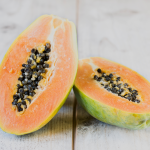Chickens and other poultry are colorful and delightful additions to any backyard. Their antics are amusing; they readily interact with their human caretakers and lay edible ovals called eggs. But backyard poultry flocks, raised lovingly by urban and suburban hobbyists, have been recently cited as the cause of several pathogenic outbreaks by the Centers for Disease Control (CDC).
salmonella
What does the science say about the safety of America’s chicken farming practice?
"Things have not gotten as stupid as they are going to get." That was a 2015 tweet from John Tabin, co-host of a podcast called "The Bureau of Alcohol, Tobacco, and Friends." It's fair to say, judging solely by infectious disease stories, that since then his prophecy has been fulfilled several times over.
There's nothing magical about a rattlesnake. Just because rattlesnakes are tough and cool doesn't mean that you'll be tough and cool if you eat them. Instead, you might just be a dope.
Twenty-three Salmonella infections reported across nine states have prompted a recall of eggs by the dozens (well millions, actually.) Worried about the eggs in your fridge? Read on to learn if you should check your carton a bit more closely before making this morning's omelet.
Snake oils are useless nostrums promoted to treat and/or cure virtually any type of ailment. But they don't have to come from snakes. Some, however, do — such as the rattlesnake pills recently dinged by the CDC for being contaminated with Salmonella bacteria. Kind of ironic, because instead of curing, they actually make the user sick.
In a fundraiser turned deadly, the folks of Columbia, Louisiana received a lot more than they signed up for. The likely culprit was determined to be Salmonella contamination of Jambalaya.
Tired of the same ole boring ways to contract food-borne illness? Look no further than chicken tartare: raw, seasoned chicken, now served at restaurants near you.
Here's some advice for you ambitious urban cowboys out there: Wash your hands after you touch your chickens. Cook your eggs thoroughly. And be on the lookout for predators.
Once again, the meme that "natural" is good is disproven by the recent news that some Mexican papayas are contaminated with (natural) Salmonella. One person has died from the bacterial illness and people are being warned to avoid one particular brand.
UV light is dangerous to humans. That's part of the reason why there's widespread interest in discovering light sources that can kill unwanted organisms – while leaving humans unscathed.
Microbiologists don't use microscopes very often. The reason is because a substantial proportion of modern microbiology research uses the tools of molecular biology, for which microscopes are not needed.










